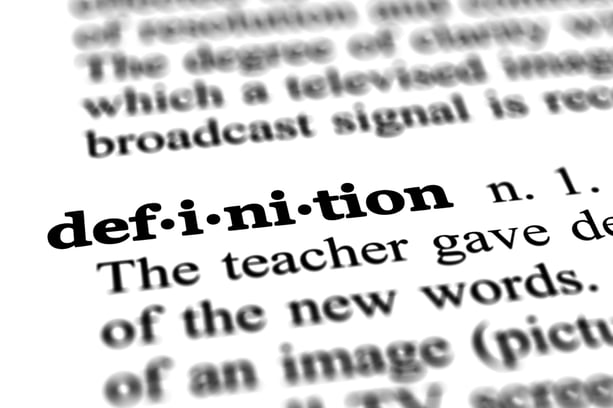
I don’t think you have to be a “bad kid” to get in trouble a lot. You just have to be someone who doesn’t know when to shut up and stop arguing. Or how to tell the difference between the practical joke that just gives everyone a laugh and the practical joke that gets you suspended.
Or at least how to structure group decision-making so it looks like the shenanigans were merely something you were a party to — rather than the ringleader of.
And so it was that I was forced onto my junior high debate team. Well, “forced” is a little strong. I had been assigned a month of detention after a series of arguments with my home room teacher. But the librarian (who also ran the debate team) had given me a choice between sitting by myself in one part of the library, or joining the debate team practice in the other part of our tiny school library. “It seems as though you’d be a natural on the debate team. You like arguing enough.” she reasoned.
Maybe she just didn’t want to supervise my detention while trying to run the debate practice. Or maybe she was actually trying to get me to channel my
argumentativeness into something more structured. Into something where the other side of the argument had to be listened to and considered before I could respond. Whatever her motivation, it was an easy decision. I went and sat down with the debate team.
And I’ll never forget her first lesson on that first day of debate practice. She set a giant Webster’s dictionary down in front of me. It landed with a deep thud. She then called out:
“Okay, team, what is the most important part of debate?”
(In unison) “Controlling the definitions of the key terms.”
“And why do we want to control the definitions of the key terms?”
(In unison) “Because whoever controls the definitions controls how the key terms are used.”
“And?”
(In unison) “Whoever controls the key terms controls the debate.”
I don’t remember much else from that year on the debate team, but that lesson has always stuck with me.
Definitions set the direction for our actions and massively influence our effectiveness.
That’s the simple idea that I’d like to get across today: the power of definitions and the need to give attention to them as we look to do our best work.
Here are a few examples of what I mean. We work with companies and individuals across the country as they seek to do something extraordinary with their businesses. And we often find that both the problems they face and the solutions we discover involve their definitions of key elements of their work. For instance:
- Company X has an important job position that they can’t keep anyone in for longer than a year at a time. As we work with them, we discover that they haven’t really defined the position. This leads to hiring of candidates that end up being a bad fit. And, even if Company X likes the new hire, the lack of definition to their role leads to frustration and burnout on the employee’s side. So, one of Rewire’s first steps with them in helping to solve this is to have them precisely define the role.
- Manager Billy doesn’t find his work fulfilling anymore and is considering a career change. So he seeks us out to work through the decision-making process. As we work with him, we discover that he hasn’t really defined his management role sufficiently. He also hasn’t spent time defining what he sees as meaningful work or defining his strengths in accomplishing that meaningful work. This leads to a lack of focus in his business and continually giving time and effort to things he isn’t gifted at and doesn’t find meaningful. Once we start working with him on definitions, things come back into focus. He may or may not change careers, but he’s got a clearer picture of that decision and he’s on better footing for increased effectiveness and finding meaning in his work either way — simply by thinking about key definitions.
Our MO at Rewire is always to look at the results people are seeking and ask the question, “Where does that dynamic actually start?” In other words, “What’s the first thing you’d need to get right if you were going to get that result?” This sort of approach is embodied in the excellent article Steve wrote last week centering on the idea that “If you want change, start with stillness.” This week’s idea is if you want effectiveness, pay attention to how you’re defining key elements of your work.
Two assignments to start making definitions serve your work:
- Take some issue that’s challenging you right now. It could be a part of a project, or a key relationship, or a sales effort or some sort. Start defining everything – every part of the issue. Even (and perhaps, especially) things you think are a given in your situation, hold those definitions up to the light and get granular with them. Write down your definitions (putting things down on paper does some really beneficial things for thought processes. What we find is that, once things start getting defined, our conventional thinking and assumptions get challenged, our errors are easier to identify, and our action steps become clearer.
- If you’re in some sort of sales role, take time to work through definitions in all aspects of your sales cycle. We find that poor value propositions thrive on ambiguity. And sales efforts get more effective as definitions get sharper. For instance, take the phrase “We add value to clients.” That phrase is begging for ineffectiveness. So, to fix this, start getting granular with definitions. Define “clients.” Define the clients that you have right now. Define the clients you’ve had and lost. Define the clients you’d like to have. Define your ideal clients. Define “value.” What do you mean by “value?” What do your clients mean by “value?” Define how clients receive that value. And so on.
Any questions about how definitions function in your work? I’d love to hear ‘em in the comments section.





